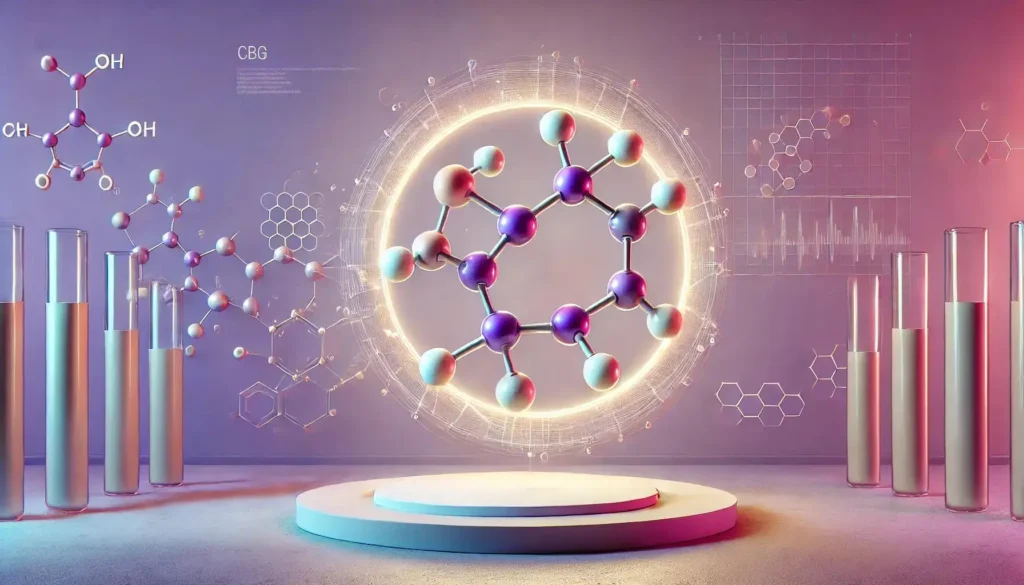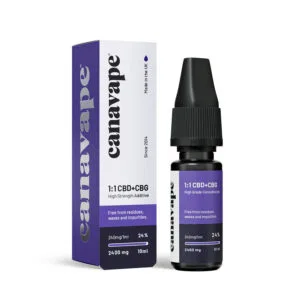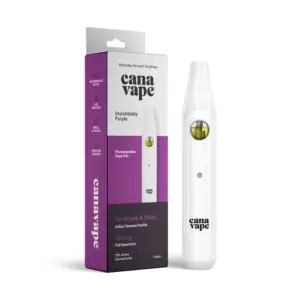
As interest in the world of cannabinoids expands, many people are turning their attention to cannabigerol, or CBG, to understand its unique effects compared to its more famous relatives like CBD and THC. CBG, often referred to as the “mother of all cannabinoids”, is garnering attention for its potential to influence mood and energy levels. Some enthusiasts claim it promotes relaxation, while others suggest it might have an energising effect. This document will delve into the properties of CBG, especially as found in vape pens and liquids, to unearth whether it truly calms the mind or keeps one alert. Join us as we explore the science behind this intriguing compound and its potential impact on your daily life.
Cannabigerol, or CBG, is a lesser-known cannabinoid found in the cannabis plant. Unlike CBD and THC, which are more prevalent and widely studied, CBG is present in much smaller quantities. Often dubbed the “mother of all cannabinoids,” it serves as a precursor to other cannabinoids. This means that during the plant’s growth, CBG is converted into compounds like CBD, THC, and CBC. Despite its low concentration in most cannabis strains, recent advancements in cultivation and extraction techniques have made it possible to isolate and study CBG more effectively. This newfound focus has led to growing interest in its potential therapeutic benefits, including its potential roles in mood regulation and energy levels. Understanding what CBG is and how it functions can provide valuable insights into its unique properties and potential applications.
CBG stands apart from other cannabinoids primarily due to its role as a building block in the formation of more well-known compounds like CBD and THC. While CBD is celebrated for its calming properties and THC is recognised for its psychoactive effects, CBG itself does not usually produce a high. Instead, it interacts with the body’s endocannabinoid system in unique ways. Research suggests that CBG might bind to both CB1 and CB2 receptors, potentially affecting mood and energy. Unlike THC, it does not produce intoxicating effects, making it an intriguing option for those seeking therapeutic benefits without impairment. Additionally, CBG is thought to work synergistically with other cannabinoids, potentially enhancing their effects through a phenomenon known as the “entourage effect.” This comparison highlights CBG’s unique position in the cannabinoid family and its potential to contribute distinct benefits in cannabis-based therapies.
CBG’s influence on the mind is an area of active research, given its potential therapeutic applications. Unlike THC, CBG does not produce a high, making it a non-intoxicating option for users. It is believed to interact with the brain’s endocannabinoid system, particularly the CB1 and CB2 receptors, which play a role in regulating mood, stress, and anxiety levels. Preliminary studies suggest that CBG may have antidepressant and anti-anxiety properties, potentially offering relief without the side effects associated with traditional medications. Furthermore, CBG might enhance focus and concentration, making it an appealing option for those seeking cognitive clarity. However, the effects can vary from person to person, and more research is needed to fully understand its impact on mental processes. As interest in CBG grows, its role in mood regulation and mental health continues to be an exciting area of exploration.
The physical effects of CBG are garnering interest due to their potential health benefits. Unlike THC, CBG does not cause psychoactive effects, which makes it appealing to those seeking relief without the high. Some users report experiencing a soothing sensation, which can help alleviate muscle tension and discomfort. Additionally, CBG may have anti-inflammatory properties, which could be beneficial for those dealing with chronic pain or inflammation-related conditions. Its interaction with the body’s endocannabinoid system suggests it might enhance overall physical well-being by promoting balance and homeostasis. While anecdotal evidence supports these claims, scientific research is still in the early stages. As more studies are conducted, a clearer understanding of CBG’s physical reactions will emerge, potentially expanding its applications in wellness and healthcare. It’s essential to recognise that individual responses can vary, emphasising the importance of personal experimentation and consultation with healthcare professionals.
Exploring whether CBG induces sedation involves understanding its interaction with the body’s endocannabinoid system. CBG’s potential calming effects may be tied to its ability to bind with CB1 and CB2 receptors, which are involved in regulating mood and stress responses. Unlike THC, which can alter perception and induce drowsiness through CB1 receptor activation, CBG’s influence is subtler. It may help modulate neurotransmitter activity, potentially leading to a relaxed state without the heavy sedation typical of some cannabinoids. Some studies suggest that CBG might increase levels of anandamide, known as the “bliss molecule”, which can contribute to a sense of well-being. However, the extent of CBG’s sedative effects can be influenced by factors such as dosage and individual biochemistry. While it may not be as directly sedating as other cannabinoids, CBG’s role in promoting calmness and relaxation remains an area of interest for further research.
CBG and CBD are both non-intoxicating cannabinoids, but they have distinct properties and effects. While both interact with the endocannabinoid system, CBD is known for its broad application in reducing anxiety, promoting relaxation, and aiding in sleep. It does this primarily by influencing serotonin receptors and potentially enhancing anandamide levels. On the other hand, CBG, though less studied, may offer a different spectrum of benefits, possibly affecting both CB1 and CB2 receptors more directly. Some users find CBG to be more energising compared to CBD. This could make it suitable for daytime use when one desires relaxation without drowsiness. Furthermore, the differences in interaction mean they may complement each other when used together, potentially enhancing the benefits through the entourage effect. As research progresses, understanding the nuances between CBG and CBD will aid consumers in choosing the right cannabinoid for their specific needs.

The notion that CBG could act as a stimulant is supported by emerging evidence and anecdotal accounts. Unlike the sedative effects often attributed to other cannabinoids, some users report increased focus and alertness after consuming CBG. This may stem from its unique interaction with the endocannabinoid system, potentially enhancing neurotransmitter function linked to wakefulness and cognitive performance. While scientific research on CBG’s stimulating properties is still in its infancy, early studies suggest it could influence the production of energy-regulating hormones. Moreover, CBG’s potential to reduce inflammation and improve blood flow might indirectly contribute to heightened alertness. This makes it an intriguing option for those seeking to improve concentration and energy levels without the jitteriness associated with caffeine or other stimulants. As further studies explore CBG’s pharmacological profile, clearer insights into its role as a stimulant are anticipated, possibly expanding its applications in cognitive enhancement and productivity.
CBG’s potential to aid alertness makes it a viable option for daytime use, especially for those who wish to remain focused and clear-headed. Unlike some cannabinoids that may cause drowsiness or impair cognitive function, CBG might enhance mental clarity and energy. Its non-intoxicating nature ensures it can be used during work or study without affecting performance. Some users find that incorporating CBG into their morning routine helps kick-start their day, providing a gentle uplift in mood and concentration. The potential anti-inflammatory and neuroprotective effects of CBG can also contribute to overall well-being, supporting a balanced lifestyle. However, as with any supplement, individual reactions can vary, so starting with a lower dose is advisable. As research continues to unfold, CBG could become a popular choice for those seeking natural ways to boost daytime productivity and maintain focus without the side effects associated with traditional stimulants.
Choosing the right CBG vape pen requires consideration of several factors to ensure safety, efficiency, and satisfaction. Firstly, it’s crucial to look for products from reputable brands that provide transparent information about their sourcing and manufacturing processes. This includes third-party lab testing to confirm the purity and potency of the CBG oil. Opt for pens that use high-quality, food-grade materials, as these are less likely to release harmful substances when heated. Consider the design and functionality of the vape pen as well; features like adjustable temperature settings can enhance the vaping experience by allowing you to customise how the CBG is vaporised. Battery life and portability are also important, especially for users who plan to use their pen on the go. Lastly, reviewing customer feedback and ratings can provide insights into the product’s performance and reliability. By carefully selecting a vape pen, users can maximise the benefits of CBG consumption.

When selecting CBG vape liquids, understanding the strength or concentration is vital for achieving the desired effects. CBG liquid strengths are typically measured in milligrams (mg) per millilitre (ml) of liquid, indicating the amount of CBG contained within. Lower strengths may be more suitable for beginners or those seeking mild effects, while higher concentrations can offer more pronounced benefits. It’s important to consider your personal tolerance and the effects you wish to achieve when choosing a strength. Additionally, the presence of other cannabinoids, such as CBD or THC, in the liquid can influence the overall experience, potentially enhancing or moderating the effects through the entourage effect. Reading product labels carefully and starting with a lower strength can help you gauge your body’s reaction and adjust accordingly. As you become more familiar with how CBG affects you, you can explore different strengths to find the optimal balance for your needs.